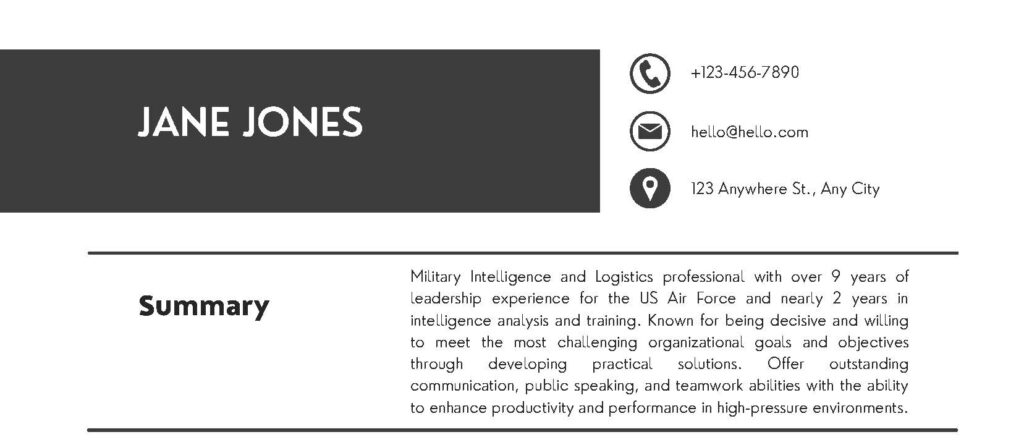Transitioning to a civilian career may take some time for former military personnel. It is best to choose a specific career path before you begin updating your resume for your job search. Each military job has different experiences, and it is essential to identify the military experience that applies to jobs that spark your interest. Translating your military experience into skills that will add value in the private sector workplace is critical for employers to identify the value of your service to their organization. In this article, we will discuss the importance of your military experience, why it is essential to translate that experience, and how to translate your military skills on your resume for potential employers.
Why is your military experience valuable?
As a former military candidate, your experience brings you many of the most marketable qualities potential employers desire. Here are some examples:
- Leadership
- Strong work ethic
- Discipline
- Integrity
- Discretion
- Respect for superiors
- Reliability
- Resourcefulness
- The ability to work as part of a team
We’ve put together some tips for building your resume with your military experience:
Include your military experience in your resume summary.

A resume summary is a paragraph at the top of your resume that briefly summarizes your professional background. It’s your first chance to show employers why your military experience makes you an ideal candidate.
Your resume summary should highlight the following information:
- Relevant military experience
- Certifications
- Expertise and skills
- Career highlights
- Achievements
List your military service in your work experience section.
Treat your military service like any other professional work experience by listing it chronologically and adding your dates of service and positions held.
Add your military education.
Military academies and schools are highly regarded in the U.S. as being top-tier educational institutions. If you’ve graduated from a military academy, credit your hard work by including it in your resume’s education section. Treat your military education as any education acquired at a public or private U.S. institution. List study dates, degree achieved, and any achievements or honors you gained.
Showcase your measurable accomplishments
It is important to use numbers and metrics to help your potential employer understand the scope of your accomplishments and the value of your contributions. Use metrics such as the number of people you supervised, the dollar value of the equipment you managed, or the inventory you controlled, and use percentages to highlight any improvements.
Proofread your resume!
Proofreading your resume is essential no matter what kind of experience you have. Check for spelling and grammar errors, and ensure you’ve appropriately translated military acronyms and jargon into civilian-friendly language.
Use programs such as spellcheck on Microsoft Word or Grammarly to check for grammar and punctuation mistakes. If possible, ask a friend already working in your applying industry to proofread your resume for clarity, confirming that civilian hiring managers will understand your military experience.
As we said earlier, your military experience gives you many marketable qualities for a career in the private sector. The hard and soft skills your experience has provided should be highlighted for future employers.
GoVA Inc. began in 2019 when our CEO and founder, Phil Jawny realized he had the opportunity to give back to the military community. Our mission is simple; we are devoted to being a trusted and credible resource for all military community members.
You served for us. Let us work for you.



